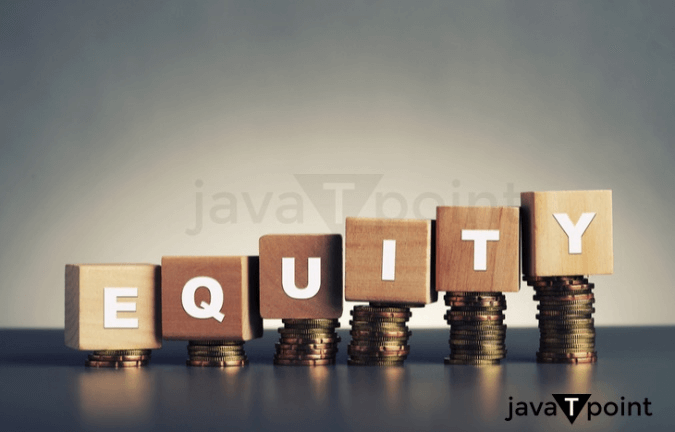Equity Shares DefinitionInvestors frequently use equity shares as a kind of investing. The enormous gains provided by equities shares are the primary driver of their popularity. To raise money for corporate growth, equity shares are issued to the public. Most of the money for many organisations comes from public investors. Let's clarify what is meant by equity shares and how one may profit long-term from them. 
What is a Share?A share is a unit of ownership in a corporation. Partners or investors who also own the business supply the initial funding required to launch a business. As the business grows, more funding is required. The company can raise money in a variety of ways, including by bringing on new investors, adding partners, and taking out business loans. The most common and preferred way for firms to raise capital is through issuing shares, commonly known as going public or launching an initial public offering (IPO). These shares can be traded by investors who buy them on stock markets including the National Stock Exchange (NSE) and the Bombay Stock Exchange (BSE). The investor is also qualified to benefit from the expansion and prosperity of the business as a stakeholder. The company issuing the shares ensures that all shareholders get dividend payments from earnings. Every corporation uses the Memorandum of Association (MoA) and the Articles of Association (AoA) to set forth the duties and rights of shareholders. These documents detail the company's objectives and the steps taken to distribute dividends to shareholders. What is Meant by Equity Shares?Companies raise capital by issuing equity shares. The general public has access to these non-redeemable shares. Investors who purchase these shares acquire the right to vote, a portion of the company's income, and ownership of its assets. The investor also receives dividends from the business as an equity stakeholder. Let's talk about the many sorts of equity shares now that the meaning of equity shares should be apparent. Types of Equity Shares Available
1. Ordinary sharesThese shares are being issued to raise funds for long-term needs. The right of shareholders to participate in managerial decisions and other company activity. Significant voting rights are granted to shareholders who own the majority of these shares. 2. Preference equity sharesPreference equity shares are often provided to investors as an assurance of the payment of cumulative dividends prior to returns being divided among regular shareholders. Voting rights for holders of preferred equity shares are restricted. If the shareholders are able to participate, they can benefit from both the required earnings as well as additional returns. But they cannot take use of these advantages if the shares are designated as non-participating equity shares. 3. Bonus sharesWhen the company makes a profit, these shares are issued to the investors as extra stakes. Bonus shares, however, do not raise a company's entire market capitalization value. 4. Rights sharesCertain investors are offered these shares by a corporation at a reduced price, increasing their ownership in the corresponding company. For a limited period of time, an organisation grants rights to shares until the necessary funds are raised to cover the business's expenses. Features of Equity Shares1. Permanent in natureThese shares that the corporation has issued are perpetual and not redeemable. These shares cannot be returned unless the company decides to shut down operations. 2. Transferable and dividend pay-outEquity shares are transferable, meaning you may sell them to another investor or buy them back from them. Many businesses send out dividends to their shareholders. The profit the company made and the cash on hand at the company both affect how much dividend is paid out. Therefore, whenever a business loses money, it may elect to delay paying dividends. 3. Potentially high returnsAlthough equity shares have great risk and volatility, they also promise very high rewards. Therefore, if you have a higher risk tolerance, investing in equity shares can help you build a sizable corpus with excellent returns. Benefits of Investing in Equity Shares1. High risk, high rewardEquity shares are associated with high-risk characteristics, as was previously mentioned. However, the profits offered by investing in equities shares increase with increased risk. Investors gain from the company's profitability through dividend payments made to them. 2. Easy and efficientAn investor can use a stockbroker or financial planner to make investments in the equity market. Using a Demat account, investors can purchase shares of any firm they choose. Trading can be done easily and effectively using a Demat account. 3. DiversityBy investing in firm shares from multiple sectors or industries, investors can build a broad investment portfolio. By exposing you to stocks from numerous industries, diversification helps you build a portfolio that will provide steady profits in the future. What are the Risks Associated with this Investment?Equity shares investments don't always produce profitable results. Although it is clear from historical data that equity shares have historically provided investors with higher returns due to many companies' stronger expansion due to rising sales and demand for their products. even if there is a danger you could lose all your equity market investments. Even though it's not all your money, you could still suffer significant losses if the business doesn't turn a profit or if the market is unfavourable. When you started your investment adventure, you had to acknowledge the dangers involved with investing in equities shares. 1. Capital LossThe supply and demand for equity shares are used to determine the share price. Investors start buying more shares of a firm if they believe it will continue to grow in the future. The price of the share also rises when shares are purchased in bulk. In contrast to this scenario, investors may elect to sell all of their shares if they anticipate the company will do poorly. This implies that when demand for the shares declines, the price of the shares could also decline. Therefore, if you invested in such shares, a decline in demand could cause you to lose money. 2. VolatilityThe share price will fluctuate over time for a variety of causes; this is known as volatility. If the price of an equity share varies by 100 to 200 points in a single day, it is said to be more volatile than a share whose price varies by 140 to 160 points in a single day. The equity share price can become volatile quickly because the market price of a share is determined by a variety of factors, including market sentiment, social and political concerns, among others. When you buy the shares at their cheapest price, you can profit from the volatile share and make money even if the share price slightly rises. You can also sell stocks when the share price increases to earn more returns. Why should You Invest in Equity Shares?Popular and the finest investing option is equity shares. Here are several justifications for thinking about purchasing stock shares: 1. High IncomeWith the assistance of equity investing, you can produce a significant income. Along with accumulating a sizable corpus with good returns, you can also increase your wealth by consistently paying out dividends. 2. Hedge against inflationWith the assistance of equity investing, you can produce a significant income. Along with accumulating a sizable corpus with good returns, you can also increase your wealth by consistently paying out dividends. 3. Portfolio diversificationDue to their lower volatility, debt instruments are preferred by investors who are concerned about the risk involved with equity investments. Nevertheless, demand determines how well the stock and bond market's function. Therefore, investors can rely on equity market investments if bond stocks are underperforming. How to Buy Equity Shares?The following accounts are required in order to invest in the equities market:- 1. Demat accountHolding the securities or shares electronically. 2. Trading accountYou require a trading account with a stock brokerage firm to buy, sell, and place orders for shares. 3. Linked Bank accountThrough an IPO or the secondary stock market, you can invest in the equity market. 4. Through IPOThe corporation launches its IPO before it lists on the exchanges. Public investors can purchase company stock through an initial public offering (IPO). You can apply to buy particular shares through your net banking account or submit bids for an IPO through stock exchanges. 5. Stock MarketYou can always buy shares after they are listed on stock markets if you missed the initial public offering. To invest in the equities market using your trading account, follow the procedures below: Open each and every account you'll need to invest in the stock market. Investors should have a trading account, a Demat account, and a bank account that is linked to it. Do some research on the business you wish to buy into. Once you have decided which shares to purchase, log into your trading account and make your selections. Once the transaction is finished, the shares you ordered will be credited to your Demat account. Equity market investing takes a lot of time and work; never make an investment choice based on a lack of information about the firm. Make sure you comprehend the fundamentals of how the stock market works. When you have adequate expertise and information, you can invest heavily in the equities market to amass a sizable corpus.
Next TopicFood Adulteration Definition
|
 For Videos Join Our Youtube Channel: Join Now
For Videos Join Our Youtube Channel: Join Now
Feedback
- Send your Feedback to [email protected]
Help Others, Please Share










